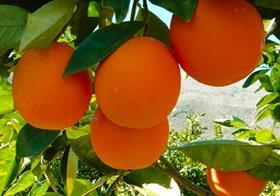
South African citrus exports to Europe will be subject to stricter controls but will not face an outright ban, Eurofruit has learned, after the EU's Standing Committee on Plant Health reached agreement on a revised import protocol today in Brussels.
The agreement reached by the committee marks the end of a particularly difficult chapter in the history of trade relations between South Africa and the EU, one which saw producers in Spain, Italy and France demand South African citrus be denied entry on the grounds of a perceived risk of the disease citrus black spot establishing itself in Europe.
According to the new measures, citrus fruits imported from South Africa will be subject to more stringent criteria such as recording pre- and post-harvest chemical treatments and mandatory registration of packhouses, as well as on-site official inspections at citrus orchards.
A sample of at least 600 of each type of citrus fruit per 30 tonnes will have to be taken by the South African authorities, with all fruit showing symptoms to be tested. Moreover, a sample per 30 tonnes of Valencia oranges will also be tested. No distinction between citrus fruits for fresh consumption and citrus fruits for processing is made.
Commissioner for Health Tonio Borg commented: 'Plant protection on EU territory is of the utmost importance and the EU had no choice but to impose a stricter inspection regime for South African citrus fruit. Systematic sampling and testing of consignments should prevent this harmful plant disease from taking hold in Europe's citrus orchards to the detriment of our farming sector. We had to take these measures because of the high number of recent interception of infected citrus fruits at European border controls.'
That perceived risk has been a matter of some contention, with South Africa receiving the backing of trade counterparts in northern Europe and a sizeable group of scientists worldwide despite strong support for a ban from the European Food Safety Authority and Mediterranean growers.
In late November, the EU imposed what amounted to a provisional ban on imports of citrus from the country, but that blockade came to an end at the start of 2014, meaning a further decision on the future of South African citrus in Europe had to be made during what is currently the export trade's off season.



